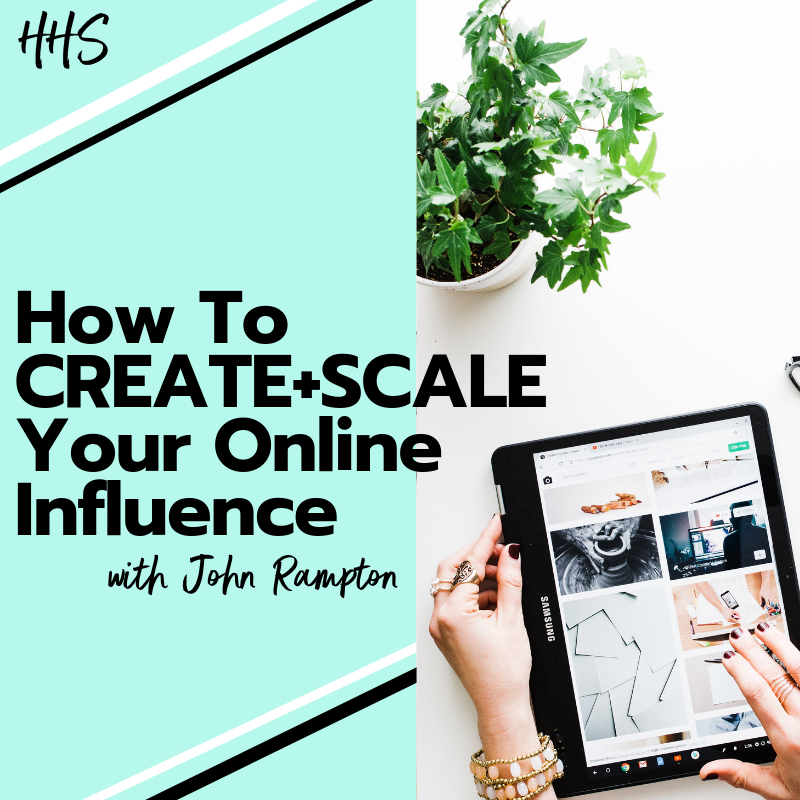It’s good to be niche but also recognize how you can build on certain areas to reach more people across more niche areas where you can expand your scope of influence.
-John Rampton
In the age of online influence, social media and online profiles are power. From the comfort of your home or neighboring coffee shop, you can build an audience that engages with your content, buys your products, and provides credibility to land sponsorships and partnership deals. But, most people don’t know where to start when it comes to building their online influence. Growing an audience that can move the needle on credibility takes a long time, and requires thoughtful engagement and content creation. Many don’t know where to start, or how to scale what they’ve already built.
I recently spoke to online influencer, serial entrepreneur, and Founder and CEO of Calendar John Rampton about how entrepreneurs can create and manage their online influence. Rampton was ranked as #2 on the Top 50 List of Online Influencers in the world by Entrepreneur, so to say he understands the power and how-to’s of online influence is an understatement.
HHS: In the age of online influence, the most important advice many hear is that it’s important to develop influence in a niche. Do you agree with this advice, and if so, what is your niche?
JR: To a certain extent, I agree that it’s important to develop a niche area of influence. When I first started working in the online environment, I focused on Internet Marketing and developed a following around the expertise I provided to help entrepreneurs and small business people better market themselves online.
However, my niche segments of interest grew as I explored more areas where I might be able to develop and launch a startup, which led me to create and run Due.com, which continues to be a successful online invoicing and payments company. In starting that business, I worked to develop my influence in that niche segment. However, there was still an overriding connection to my original audience of small business owners.
From there, I looked for other similar niches that could continue helping this same audience but in additional ways. This led to my present company, Calendar, where I help as an online influencer related to topics like time management and productivity.
Therefore, I think it’s good to be niche but also recognize how you can build on certain areas to reach more people across more niche areas where you can expand your scope of influence. Now, I can influence small business owners in areas that include online marketing, payments and invoicing, fintech, time management and more.
HHS: Did you set out to become an online influencer? How have you built your audience?
JR: When I started in Internet marketing, I happened to be in a hospital bed, recovering from a terrible construction accident where I wasn’t sure if I would ever walk again. At that moment, it was something to keep me occupied. But, once I started to explore what was possible and study the ways other people built a following, I knew it was what I wanted to do that could tie to the startup I wanted to develop.
I spent numerous hours studying those online and creating a picture of what my audience would look like and what they wanted. My research also included trying out all the social media platforms and seeing how others used them. It helped me to see what attracted an audience and what turned them off.
It took a lot of time, but this helped me get to the right people more quickly. Once I knew who they were, I began reaching out to them and sharing valuable information that I could see they were searching for, which had them coming back for more.
HHS: What are hopeful online influencers doing wrong?
JR: The biggest mistake is skipping the necessary research time and jumping in, believing that they can gain a following overnight. In trying to rush their results, they are losing audience members. You can’t treat them like they are visiting a used car lot; instead, it’s about a slow build in the relationship to establish trust and credibility.
And, when you do the research, you can actually get the audience the content and help they want, which will produce faster results — but still not as quickly as some online influencers expect. It’s about patience, consistency, and smart effort.
HHS: What tips do you have for consistency in what you’re publishing online?
JR: Although I have many content professionals on the team to vary the style and delivery of what gets published, I ensure they have the overall brand guidelines and sense of values I represent so that this gets weaved into everything shared with the audience. We also use a content calendar and list of themes that direct everything as well as editorial guidelines to ensure high-quality consistent information that our audience can rely on.
HHS: How do you envision the future of online influence?
JR: With more concern over fake news, online influence will become a tougher sell for audience members who are becoming more skeptical about what and who is real in the online environment.
Online influence may need to become more personal and personalized with greater use of live video so that the audience sees and knows who is potentially influencing them and their decisions. Also, there may be a need to add some offline influence opportunities to the mix for face-to-face trust building.
**
I think John hit the nail on the head: online influence is most effective when offering value, which means your audience has to trust you. You can cultivate this trust by being more vulnerable with your audience – whether you do an Instagram live every morning or share personal experiences. At the end of the day, your audience is comprised of people who want to learn and grow. Offering them the value and perspective to aid them on their journeys will establish your influence. Time to get started! Big thanks to John for sharing his insights.


